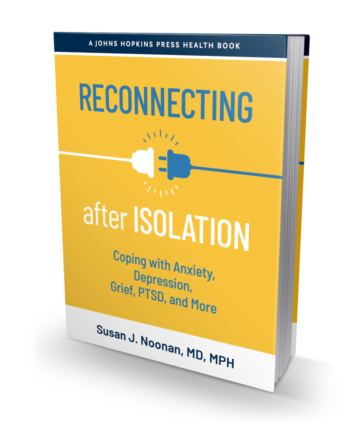Beware of the rush to label yourself as “unfixable” or “treatment resistant” if you become discouraged with the course of your treatment for depression. This happens all too frequently in the deep despair of the many medication and treatment trials that are often required of those who have mood disorders. In addition, researchers who study people’s response to treatment have observed that only about 60-70% of people respond to the first medication they try. This tells us that a person who has depression symptoms needs to be patient and persistent in trying to find the best medication, treatment or combination of treatments for him or her. It’s a process that is different for everybody. I’ve often heard “I’m not fixable” relatively early in the course of the illness, and the person is ready to give up trying. It’s not in your best interest for several reasons and I will explain why.
First, depression is not just one “plain vanilla” illness. No two people have the same exact set of symptoms; there is a broad range of changes in thoughts, feelings, behaviors, and physical occurrences that people experience. Some people get more irritable, some not at all, some people sleep too much, some too little, some lose weight, some gain weight, and on. Also, each person’s episodes of depression come in a variable pattern over time that makes his or her illness experience unique. Some are ill for weeks, some for months, some have one episode and then nothing again for years. There are different subtypes of depression as well to consider. This makes it difficult to generalize and choose the best treatment or combination of treatments (medication and non-medication) for each person. The many different flavors of depression in the millions of people who have it thus requires that we have many different treatment options available, and the trial and error process of sampling each option is time consuming.
Those who might be considered “treatment resistant” in psychiatry fall into three general categories. In the first group are those who have been undertreated, and because of this it is not fair to call them treatment resistant. What does under-treatment mean and how does it happen? It’s when you are not on the recommended dose of a medication or have not been on it for a sufficient length of time to obtain benefits from it. Perhaps you have not been able to reach the recommended therapeutic dose of the medication, or don’t or cannot take it at the recommended time intervals (frequency). Perhaps you haven’t been on it long enough to see an effect and you stopped taking it. This is all pretty common. It could be because you had side effects or didn’t tolerate taking the medication, or were just not up to following the dosage regimen. These issues are not as common now as in the past because the newer antidepressant medications are considered better tolerated, but they do happen.
In the next category are those who perhaps were not accurately diagnosed as having major depression in the first place, so it’s also not fair to call them treatment resistant. This can be seen in the elderly who sometimes appear depressed due to the many different medications they take for physical ailments, like heart disease or high blood pressure. Another example is someone who actually has unrecognized bipolar disorder that is thought to be major depression initially. He or she may appear depressed at first and may not have his first manic episode until taking an antidepressant medication, which triggers the mania of bipolar disorder. There are other examples of inaccurate diagnoses – these individuals do not have treatment resistant depression but rather another condition.
The third group are those who have been vigilant about medications and treatment as prescribed and still do not see a response. These individuals, fewer in number, are those who have true “treatment resistance.” But this does not mean treatment impossibility! There are still many effective options open to these individuals in the hands of a skilled psychiatrist. For example, along with select medications and talk therapy (psychotherapy) there is electroconvulsive therapy (ECT), transcranial magnetic stimulation (rTMS), combinations of medications, new medications being developed, augmentation of an antidepressant with a non-antidepressant medication such as thyroid, and “off-label” use of medications (medications initially designed for one condition later found to be helpful for another). One example of thinking “out of the box” with off-label use is minocycline as an antidepressant. Minocycline is an antibiotic pill which has been found to impact the GABA receptors in the brain and is known to be effective in improving mood. Unfortunately, there are no large scale randomized clinical trials of minocycline for depression because it is an “old” and inexpensive medication and as I understand it nobody will agree to fund such a clinical trial right now.
What is the message here? Be patient with yourself and persistent with the many treatment trials that you may have to face before you find one that works well for you. Don’t be too quick to give up on yourself or on the process of finding your optimal treatment, however long that may take. Easier said than done, this I know from personal experience.
Stay well!
This article was previously published in View From the Mist on Psychology Today.

